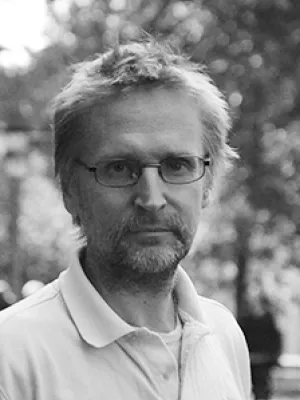
Martin Hall
PhD | Associate Professor | Senior Lecturer

The void : Urban wasteland as political space
Author
Summary, in English
The production of the void – either it is made a no-space, devoid of any meaning, or a mesmerising rabbit- hole leading to another world – is here understood as fundamentally political. With a relational conception of space and an anti-essentialist conception of politics and the political, the author conducts a deconstruction- inspired analysis of the becoming of the urban void as another kind of space. The Derridean notion of an undecidable provides a figure of thought that hinges the analysis together with a particular way of under- standing how dominant discourses on the City and conceptualisations of the urban void interact to deter- mine each other. It does not present a “truer” version of the urban void, but aims to shake up the dominant modes of conceptualising the phenomenon.
The analysis engages a variety of texts – whether in the shape of what one might call ‘theory’, or ‘empiri- cal material’, or a TV-series, or a novel – and the thoughts provoked by working with those texts, have been edited into a montage. Fieldwork – in Athens (Greece), Berlin (Germany), Brasília (Brazil), Malmö and Stockholm (Sweden) – interviews, analyses of policies and plans, and close readings of academic literature from a range of different fields, have generated material for the study. The editing of a montage is, however, more than a mere methodological tool or a way of writing; with Rancière’s notion of ‘indisci- plinary thought’ it politicises the way of making the analysis by engaging a variety of perspectives and material in different forms that transgress disciplinary boundaries.
The thesis not only writes the urban void into politically relevant space, but also represents it in a way that makes it obvious as a politically relevant space. It brings the ‘no-spaces’ out of an (assumed) obscurity, yet at the same time de-mystifies the (same) fascinating places, in hope of a less polarised and more nuanced discourse on the urban wastelands. Only then can the existence of the urban void as a category of left over space be questioned, and the thesis concludes by opening up for future inquiry the question of what kind of city could become from a point of view where the urban void is just another kind of space.
Department/s
- Department of Political Science
Publishing year
2016-09-16
Language
English
Publication/Series
Lund Political Studies
Issue
181
Full text
- Available as PDF - 17 MB
- Download statistics
Document type
Dissertation
Publisher
Lund University
Topic
- Political Science
Keywords
- urban void
- urban wasteland
- urban planning
- urban politics
- space
- rhythm
- undecidable
- montage
- Derrida
- Massey
Status
Published
Supervisor
- Björn Badersten
- Martin Hall
ISBN/ISSN/Other
- ISSN: 0460-0037
- ISBN: 978-91-7623-927-8
- ISBN: 978-91-7623-926-1
Defence date
16 September 2016
Defence time
10:15
Defence place
Edens hörsal, Paradisgatan 5H, Lund
Opponent
- Nils Hertting (Docent)

